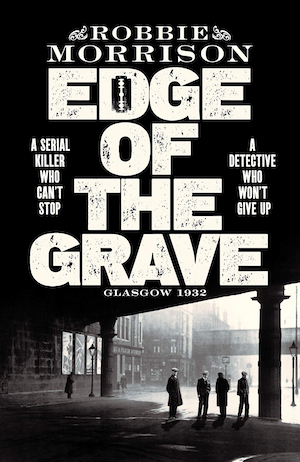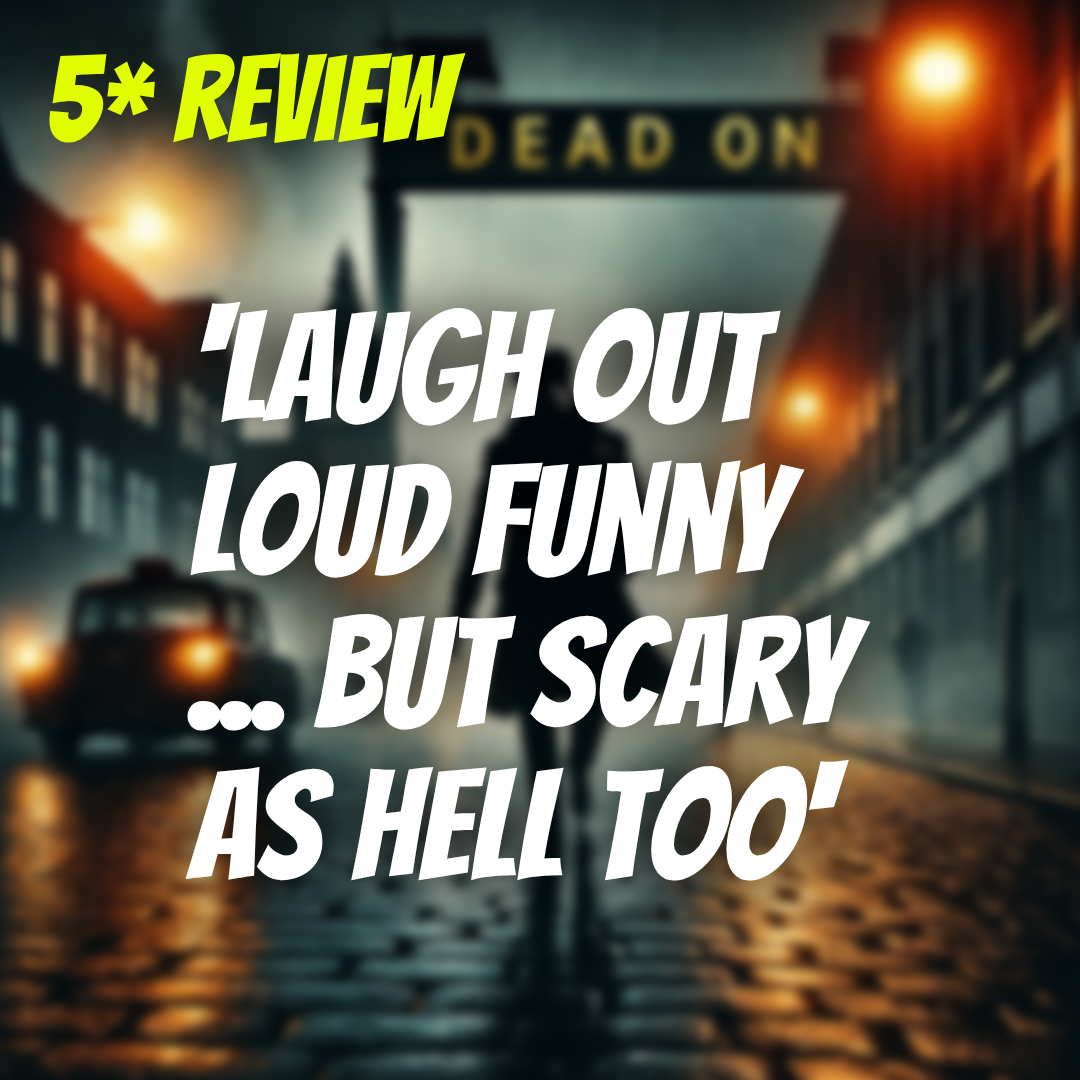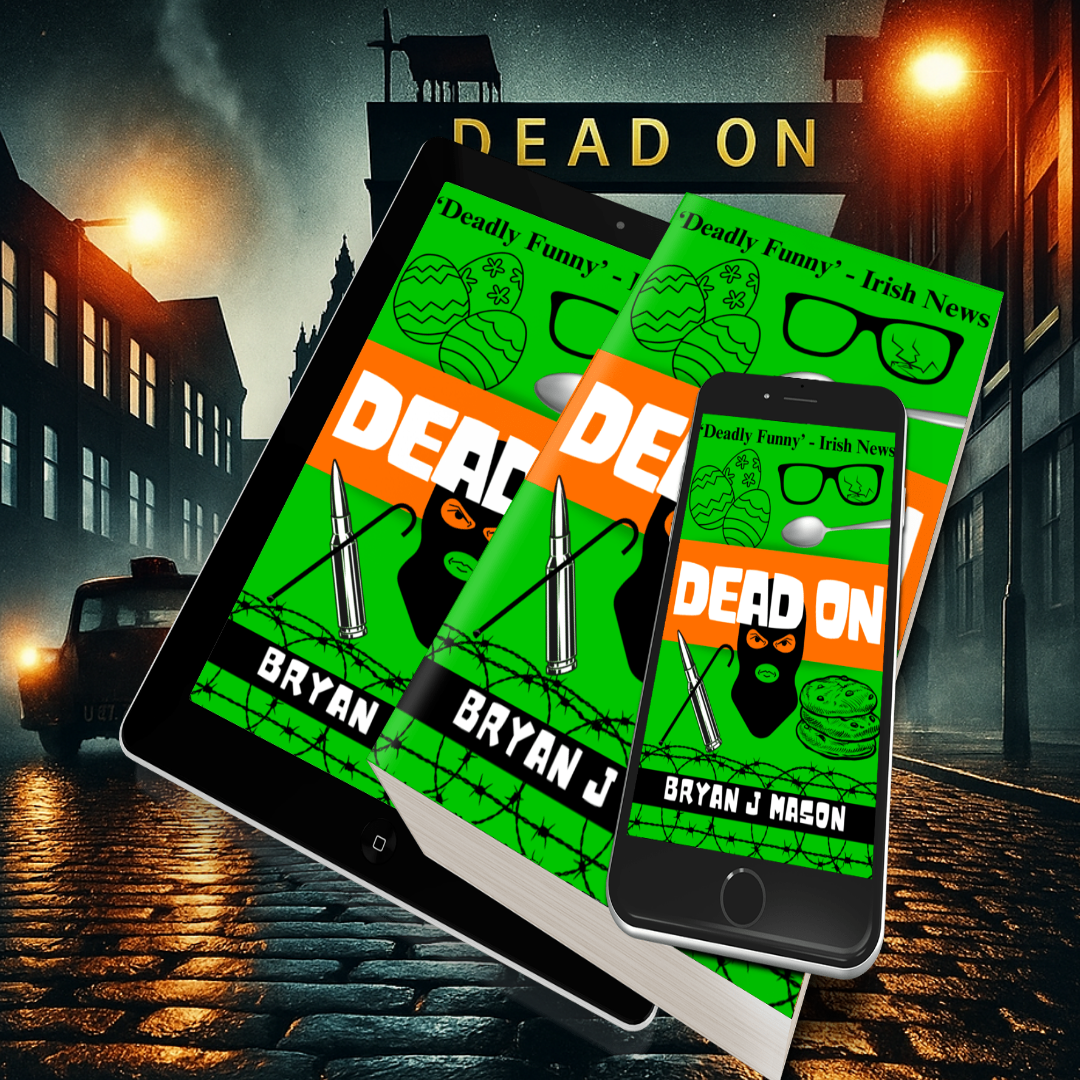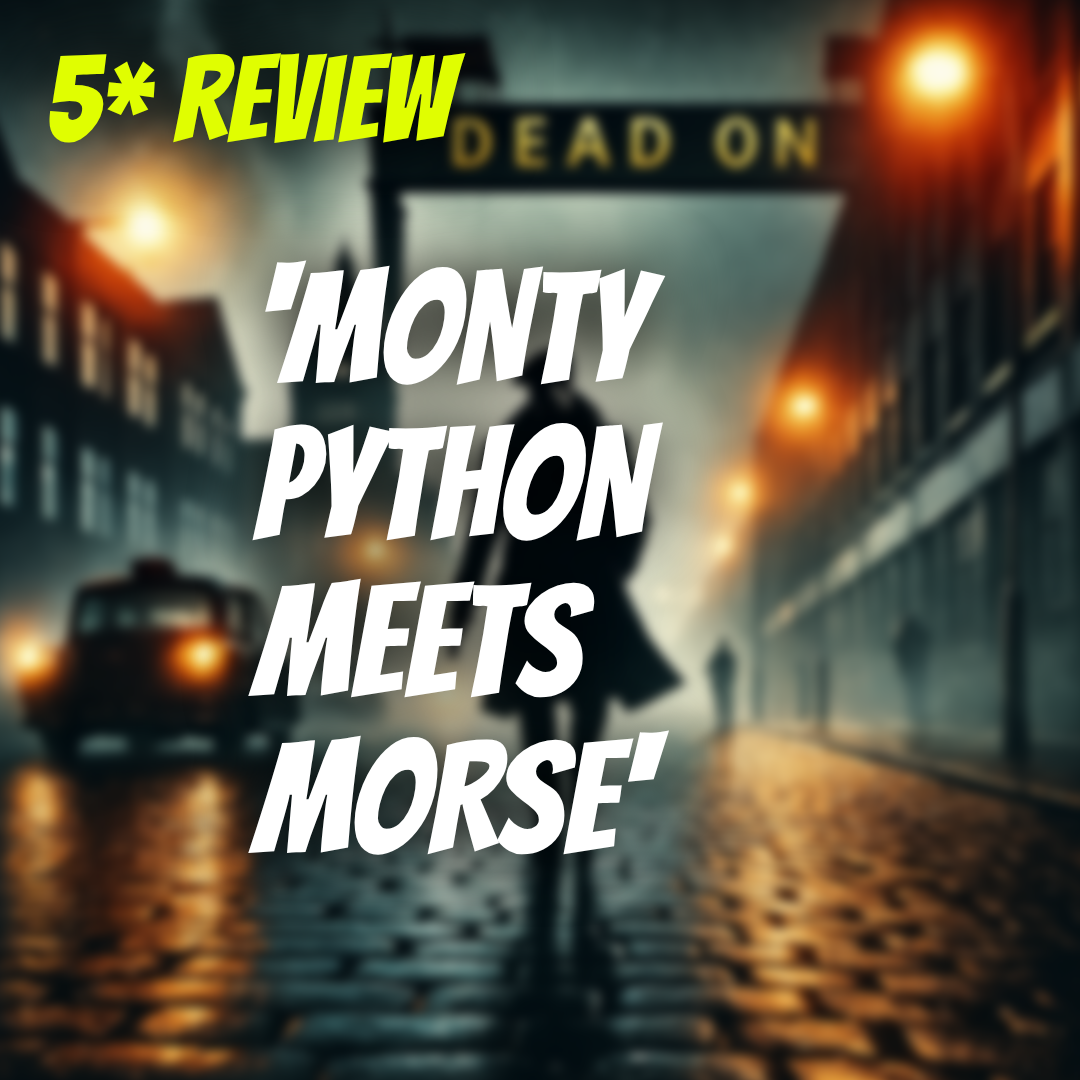
Glasgow has a hard reputation, as anyone who has been ‘kissed’ by one of its residents will tell you. The city and its denizens are at the heart of Edge of the Grave, the debut crime novel by Robbie Morrison. With a background writing comics for 2000AD, in his first novel he takes us back to the 1930s. Shipbuilding was still a booming industry on the Clyde back then but the city faced various problems including widespread poverty, strikes, sectarianism and criminal gangs.
The author shows his skill early on, beginning with a fly through that takes you across Glasgow and gives you an immediate understanding of what his book really wants to say. It swoops amongst the poor tenements and the upmarket townhouses, the Catholic neighbourhoods and the Protestant ones, and crosses the territory of several street gangs. Poverty, prejudice and violence await just around every corner. It is a city divided.
James Dreghorn is a battle-worn World War I veteran, now a detective, who straddles some of those divisions. Like Adrian McKinty’s Sean Duffy over in Belfast, he’s a Catholic cop in a Protestant force, but his faith left him a long time ago. He’s not a big fellow, but used to be a boxer. His partner is Archie McDaid. Much larger and a former wrestler, McDaid is often Dreghorn’s enforcer but is also a big, cuddly family man. They work in a force that is reforming and taking to modern methods of evidence gathering, however the Chief Constable – an Englishman – also believes that to overcome the gangs they will have to meet violence with violence.
As detectives, Dreghorn and McDaid can sidestep a lot of that nonsense. Most of the time, at least. Their case in Edge of the Grave comes from different circles. Solicitor Charles Geddes has been pulled from the Clyde with his throat slit from ear to ear. Married to Isla Lockhart, Geddes might have been in line to inherit part of Sir Iain Lockhart’s shipbuilding empire. He practised family and property law, so the culprit is unlikely to be a former client. Robbery is ruled out – his wallet was still in his coat. So who killed this apparently benign lawyer?
His wife Isla wants to know and, as a member of the upper echelons of Glasgow society, she uses her influence to ensure that Dreghorn is assigned to the case. The pair have history. Even though Dreghorn grew up in impoverished streets stalked by razor gangs, he came under Sir Iain Lockhart’s wing when he worked in the shipyards before the War. He joined a boxing gym sponsored by Lockhart and found himself up at the family’s county estate, Kelpie House, where he met the young Isla and fell in love with her. Her brother Rory was Dreghorn’s commanding officer when they went to fight in France.
The Geddes case moves slowly at first, but there is plenty going on for Dreghorn as author Morrison works further layers into his story. For example, Dreghorn and McDaid are hunting for a man who dashed his six-year-old boy’s brains on the range, probably while under the influence. The father is a smalltime hoodlum, and while looking for him Dreghorn comes across Billy Hunter. Hunter grew up in the same neighbourhood as Dreghorn, and they served in the same regiment, but he took a different path and now leads a gang called the Billy Boys. Dreghorn ends up moonlighting for Hunter, who wants help finding his sister, who went missing more than a decade ago while Hunter was in prison.
The atmosphere Morrison conjures is so captivating it’s hard to believe this is his debut crime novel. You’ll see lots of action – horrific violence, murder and criminality among both rich and the poor. A steamy sexual relationship is rekindled between Dreghorn and Isla. It’s very forbidden fruit. All kinds of corruption is exposed as Dreghorn treads on toes in the force, in the brothels and among the gangsters. The complexity of the novel, the very hard side to police life that we see, and the believable rendering of the city, give Edge of the Grave the same intensity as James Ellroy’s Dudley Smith books, which were set in Los Angeles in the 1940s and 50s. There’s a slightly gothic feel too, with the Lockhart estate at Kelpie House evoking Celtic mythology as it becomes a centre for the drama.
Unfortunately, that atmosphere cracks a little here and there. Sometimes, the historical exposition gets in the way a bit. Do we need the narrator to explain what was going on in Germany and Italy in the 1930s? Does the reader want Prohibition explained? Is Roosevelt someone a Glasgow cop would think about? There is plenty of social commentary through the depiction of poverty, violence, alcoholism, poor working conditions and so forth, but where it ventures into women’s rights it begins to feel a bit heavy handed. When a woman police constable is introduced and Dreghorn becomes her protector, it starts to feel like the author wants 21st century readers to like Dreghorn too much. He’s the good guy, but is a bit too good to be true.
Maybe, he would be more interesting with rougher edges and a few more flaws. Darker. Weird and broken… Hmmm.
A solution might have been to tell parts of the story from the perspective of one of the women characters in it. I would love to see the 1930s Glasgow that Robbie Morrison has created through the eyes of the whorehouse madam Kitty Fraser, poor little rich girl Isla Lockhart or WPC Ellen Duncan. Morrison has invented a whole ecosystem of fully fleshed characters, with fascinating qualities and imperfections. They are all ripe to play bigger roles, and Billy Hunter would make a great anti-hero in a future novel.
But I don’t want to sound like I’m complaining. I loved this novel. It’s dense, immersive and visceral. You feel like you’re there as the fog sweeps in off the Clyde and the gangs emerge from the shadows with their clubs and knives. You should grab Edge of the Grave at the soonest opportunity. In spite of the little things I’ve picked up on above, this is without doubt the most evocative and engaging Scottish crime novel we’ve come across in a very long time. It’s historical crime fiction with a setting and characters that draw you right in. Perfect for fans of Philip Kerr, James Ellroy or Abir Mukherjee.
Click here for more Scottish crime fiction.
Macmillan
Print/Kindle/iBook
£8.49
CFL Rating: 4 Stars









